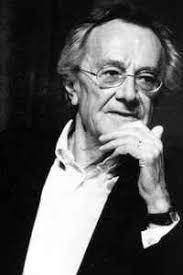Lyotard, Jean-François

Bio: (1924-1998) French philosopher. Jean-François Lyotard has taught at several universities in France and the United States, including the Sorbonne. He became famous for his books Discourse, Figure (2011, in French 1971), Libidinal Economy (1993, in French 1974), and The Differend: Phrases in Dispute (1988, in French 1983), in which he explored the themes of avant-garde art, literature, psychoanalysis, and structural linguistics. In the book Discourse, Figure Lyotard argues that avant-garde art and literature are not features of any particular era, but that they have the potential to be present in every era because they bring revolutionary feelings by changing the existing structure and bringing new, strong, and transformative ideas and desires. In Libidinal Economy, he examines how sexual desires and feelings affect economic relationships, while in the book The Differend: Phrases in Dispute he explores the relationship between the unconscious and what he calls "language games." The term language games denotes the multiplicity meaning, endless separate systems in which meanings are produced and where rules for their circulation are created.
Lyotard's greatest contribution to sociology is the book The Postmodern Condition (1984, in French 1979). He believes that in pre-modern societies, the narrative was, above all, preserved with the help of those who told stories, where tradition and customs strengthened the sense of social unity. In modern times, science, which has received legitimacy from the state and other institutions, has led to the creation of metanarratives that have replaced storytelling, customs, and traditions. This development represents the realization of the ideals of the Enlightenment, that is, faith in human reason and progress that will enable the emergence of objective and positive science.
Metanarratives control how knowledge is created, evaluated, and organized. Examples of metanarratives are Enlightenment rationalism or the Marxist belief in the replacement of capitalism by the dictatorship of the proletariat. These metanarratives are based on the nostalgic need for the organic unity of society. Postmodernism has led to the rejection of metanarratives as totalizing knowledge that imposes absolute truths. Instead, postmodernism brings many paths to truth and the creation of new narratives that will resist metanarratives. Relativity and uncertainty are accepted, and knowledge is always seen as incomplete. Universal standards and criteria are rejected, and multiple paradigms are introduced. Knowledge is becoming decentralized because the fight against metanarratives and bureaucratized science and technology is being waged at the micro level. In addition, there is resistance to the centralized power of the modern state and the dominance of multinational companies.
Fields of research
Art Bureaucracy Corporations Customs, Social Domination Economy Institution and Organization Knowledge Language Modernity Morality Postmodernism Protests Psychology Science Sex State Technology Time TraditionTheoretical approaches
Postmodern TheoryMain works
La Phénoménologie (1954);
Pourquoi philosopher ? (1964);
Discours, Figure (1971);
Dérive à partir de Marx et de Freud (1973);
Des dispositifs pulsionnels (1973);
Économie libidinale (1974);
Les Transformateurs Duchamp (1977);
La Condition postmoderne (1979a);
Au juste (1979b);
Le Différend (1983);
L'Inhumain: Causeries sur le temps (1988a);
Heidegger et les Juifs (1988b);
Peregrinations: Law, Form, Event (1988c);
La Faculté de juger (1989);
Leçons sur l'analytique du sublime (1991);
Moralités postmodernes (1993);
Signé Malraux (1996a);
Questions au judaïsme (1996b);
La Confession d'Augustin (1998);
Misère de la philosophie (2000).
Works translated into English:
Phenomenology (1991, in French 1954);
Discourse, Figure (2011, in French 1971);
Libidinal Economy (1993, in French 1974);
Duchamp's TRANS/formers (1990, in French 1977);
Just Gaming (1985, in French 1979b);
The Postmodern Condition: A Report on Knowledge (1984, in French 1979a);
The Differend: Phrases in Dispute (1988, in French 1983);
The Inhuman: Reflections on Time (1991, in French 1988a);
Lessons on the Analytic of the Sublime: Kant’s Critique of Judgment (1994, in French 1991); Postmodern Fables (1997, in French 1993);
Signed, Malraux (1999, in French 1996a);
The Confession of Augustine (2000 in French 1998);
Enthusiasm: The Kantian Critique of History (2009);
Why Philosophize? (2013);
The Interviews and Debates (2020).

